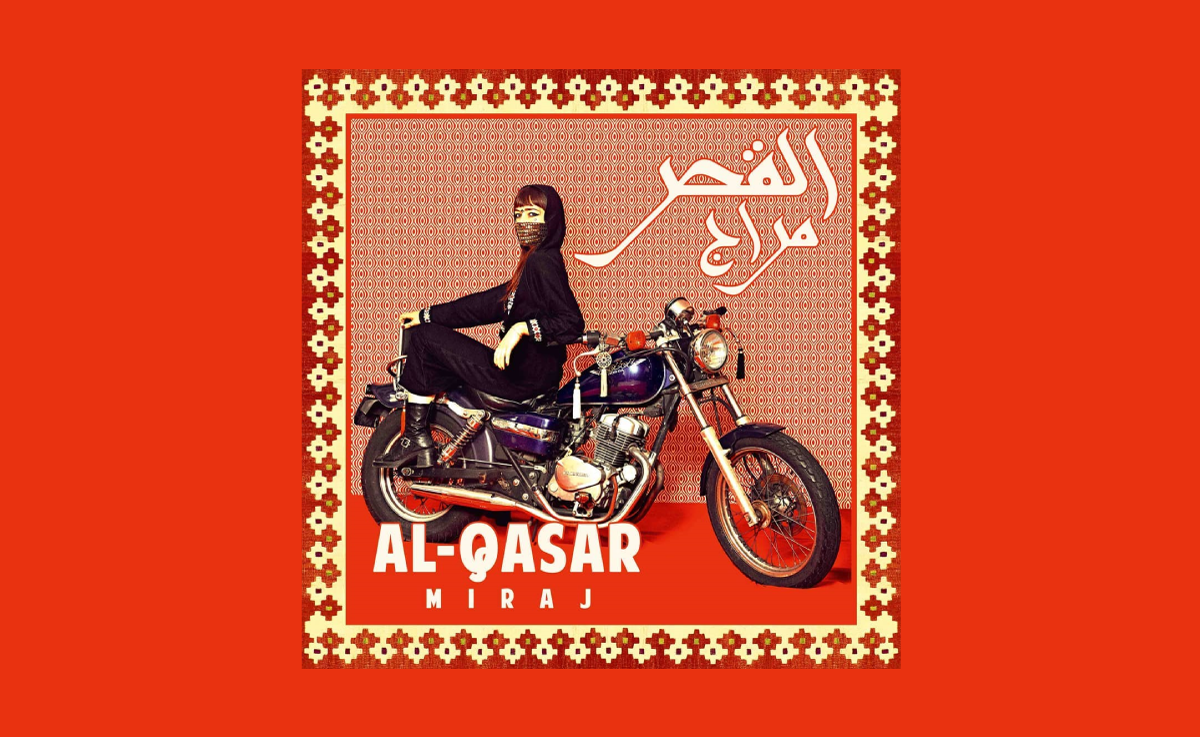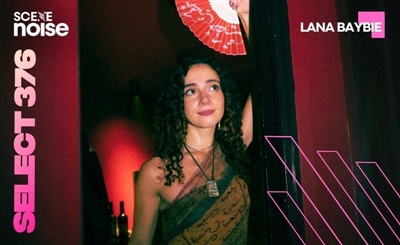Middle Eastern Psychedelic Pop Meets Contemporary Rock in Al-Qasar's New Album 'Miraj'
Musicians from France, the US and the Middle East come together to celebrate and put a fresh, contemporary spin on the region's psychedelic pop of yesteryear.

‘Arabian Fuzz’
is what they call it. French-American producer and founder of Al-Qasar, Thomas Attar
Bellier, uses the phrase to describe the kindred spirit that he finds in the Middle
Eastern psychedelic pop of the sixties and seventies. Think Turkey’s Erkin
Koray, Lebanese artist, Elias Rahbani, and Iranian diva, Googoosh. Alongside
Paris-based percussionist, Amar Chaoui, Algerian artist, Mehdi Haddab, and
Egyptian oud prodigy, Mohamed Abozekry, Bellier has created an upbeat,
seven-track EP that doesn’t intellectually dissect its source of inspiration,
but unabashedly celebrates and simply has fun with it.
We first
got a whiff of Mirage in December 2019, in its first single, ‘Gnawi’,
then in February’s ‘'Ahlan Wa Sahlan'. The EP was, in fact, originally slated
for a late-March release, but then a certain pandemic hooked its talons into
the world and we instead got a third single, ‘Selma’. Three months on, it has
finally arrived and emphatically delivers what the three singles promised: an
eclectic, colourful record that maintains a fresh, contemporary feel despite its
distinctive inspirations.
<iframe src="https://widget.anghami.com/album/1010437298?bid=/?theme=fulldark&&layout=list&&lang=en" scrolling="no" frameborder="0" width=600 height=450 ></iframe>
The album
kicks-off with ‘'Ahlan Wa Sahlan’, which is best described as a garage rock meets a particularly
intense Sufi mawlaweya performance – and those things are already as
intense as it is. Things take a turn for the psychedelic early on – in the
second track, to be precise. The instrumental ‘Dance of Maria’ winds through
the kind of psych-pop sound that rang through 70s discotheques of everywhere from
Egypt, to Lebanon, to Iran. ‘Jawi’ acts an interlude of sorts, but the 30-second
classical oud solo doesn’t pave way for change of pace in the album. Track
four, ‘Gnawi’, boasts a similar pace to the opener, painting a high-speed cross-desert
space with its use of Tuareg and Levantine sounds.
<iframe width="800" height="450" src="https://www.youtube.com/embed/tDm7P94dzqE" frameborder="0" allow="accelerometer; autoplay; encrypted-media; gyroscope; picture-in-picture" allowfullscreen></iframe>
‘Selma’ is the
highlight of the album, however. Said to address "the missed opportunity
of the various uprisings against corruption and oppression, and in particular
the impasse of the Arab Spring,” the track boasts a twisty, meandering surf
rock guitar-like riff and a video that uses clips of Egyptian films. You can find a similar vibe in ‘Rock Lehdood’,
albeit more subtly – and that subtlety is to its detriment, as well as that of
closing track, ‘Raqs Al Hayat’. There’s little that you can describe as subtle
in the tracks that precede them and though they maintain the energy, they ultimately
fail to capture the sheer joy and psychedelia of the rest of the album. The two
tracks would have served better in earlier spots to temper the blasts of ecstasy
that shoot around every corner, but as a whole, Bellier and his accomplices
have produced a piece of work that is modern, bold and quite unique.
- Previous Article test list 1 noise 2024-03-13
- Next Article MARSM is Streaming Acclaimed Music Documentary 'Cairo Jazzman' for Free
Trending This Month
-
Jan 29, 2026






















